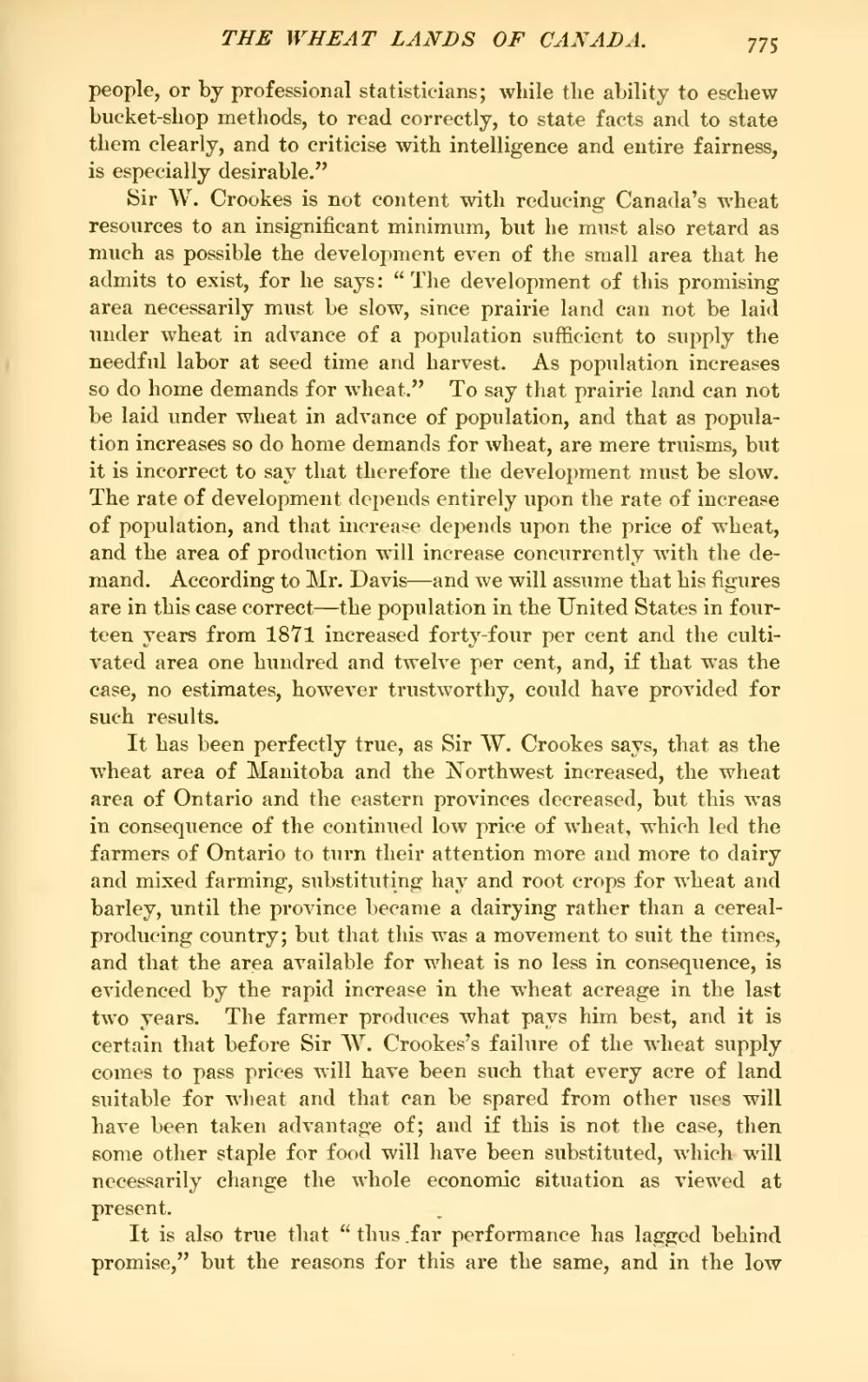people, or by professional statisticians; while the ability to eschew bucket-shop methods, to read correctly, to state facts and to state them clearly, and to criticise with intelligence and entire fairness, is especially desirable."
Sir W. Crookes is not content with reducing Canada's wheat resources to an insignificant minimum, but he must also retard as much as possible the development even of the small area that he admits to exist, for he says: "The development of this promising area necessarily must be slow, since prairie land can not be laid under wheat in advance of a population sufficient to supply the needful labor at seed time and harvest. As population increases so do home demands for wheat." To say that prairie land can not be laid under wheat in advance of population, and that as population increases so do home demands for wheat, are mere truisms, but it is incorrect to say that therefore the development must be slow. The rate of development depends entirely upon the rate of increase of population, and that increase depends upon the price of wheat, and the area of production will increase concurrently with the demand. According to Mr. Davis—and we will assume that his figures are in this case correct—the population in the United States in fourteen years from 1871 increased forty-four per cent and the cultivated area one hundred and twelve per cent, and, if that was the case, no estimates, however trustworthy, could have provided for such results.
It has been perfectly true, as Sir W. Crookes says, that as the wheat area of Manitoba and the Northwest increased, the wheat area of Ontario and the eastern provinces decreased, but this was in consequence of the continued low price of wheat, which led the farmers of Ontario to turn their attention more and more to dairy and mixed farming, substituting hay and root crops for wheat and barley, until the province became a dairying rather than a cereal-producing country; but that this was a movement to suit the times, and that the area available for wheat is no less in consequence, is evidenced by the rapid increase in the wheat acreage in the last two years. The farmer produces what pays him best, and it is certain that before Sir W. Crookes's failure of the wheat supply comes to pass prices will have been such that every acre of land suitable for wheat and that can be spared from other uses will have been taken advantage of; and if this is not the case, then some other staple for food will have been substituted, which will necessarily change the whole economic situation as viewed at present.
It is also true that "thus far performance has lagged behind promise," but the reasons for this are the same, and in the low

